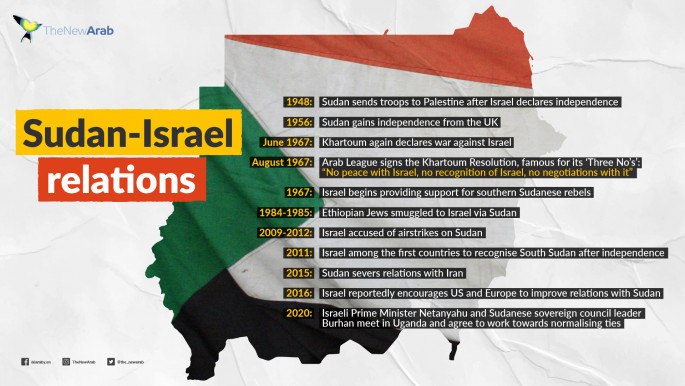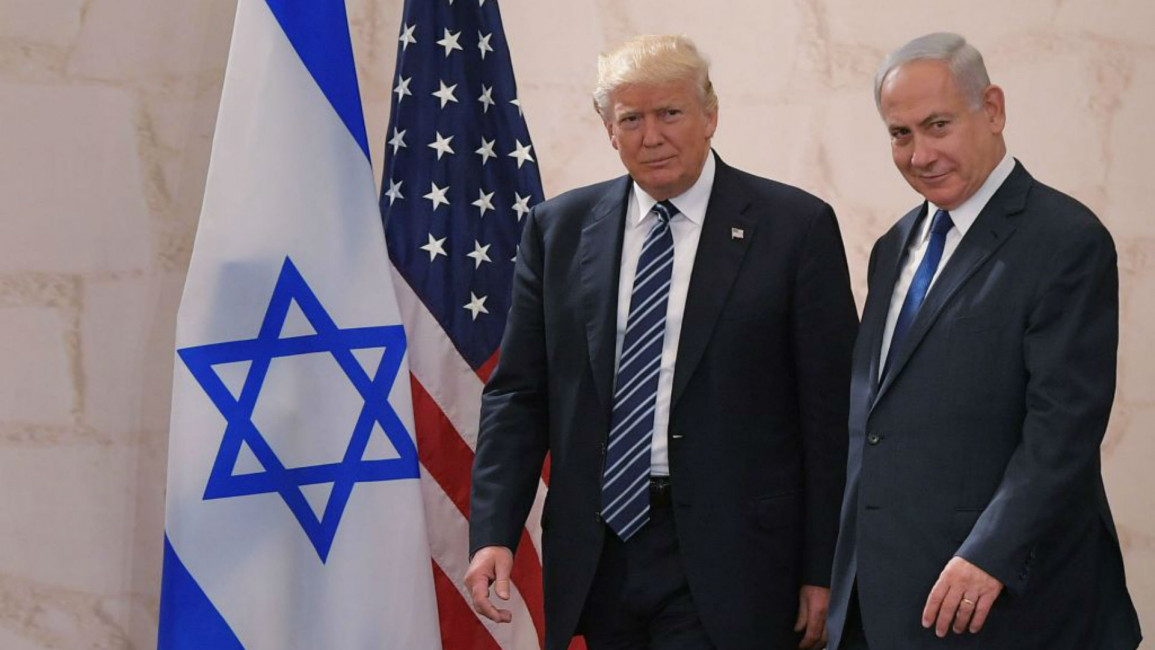
How Sudan is ingratiating itself with Trump through Israel
Motivated to dismantle Obama's legacy, many of Trump's actions, including discarding the Iran deal, increasing arms sales with Gulf leaders and deepening ties with Israeli leader Benjamin Netanyahu have had destabilising effects.
Leaders in the economic realm have been reticent to rebuke Trump on the world stage, even praising his controversial record. On human rights issues, the United Nations human rights office denounced Trump's family separation policy, at a time when critics have called out UN chief Antonio Guterres for hesitating to pressure leaders on human rights more directly.
In this atmosphere, when Trump's son in law Jared Kushner unveiled the United States' "Middle East Peace Plan," observers treated it as a curiosity, and its debut as spectacle.
The administration's policies to cut all support to UNRWA, move the US embassy to Jerusalem and blindly support all of Netanyahu's positions have dispelled the mirage of the United States as a neutral party. Left with no leverage, Palestinian leadership has cut ties with the US and Israeli governments in futility. Netanyahu continues to pursue annexation of the West Bank amid tepid rebuke.
Gulf states, historically supporters of the Palestinian cause, have been quietly realigning with Israel for some time over shared concerns about the perceived threat of Iran. In reaction to the Arab Spring uprisings, some Gulf leaders subsequently fueled counter-revolution and sectarianism, and have engaged in a costly proxy conflict in Yemen. Benjamin Netanyahu has recently begun to publicly welcome closer ties with several Arab countries.
 |
These developments have begun to alter the calculus for leaders of countries who are dependent on US and Gulf aid |  |
These developments have begun to alter the calculus for leaders of countries who are dependent on US and Gulf aid. But the concerns of country leaders are not necessarily shared among the population, according to a recent wave of nationally representative Arab Barometer surveys, which measured people's perceptions of the threat to country stability posed by Iran, Israel, and the Trump administration.
Recently, leaders from Sudan and Morocco have sought to leverage normalising relations with Israel in order to ingratiate themselves with Trump.
In Sudan, Israel supported separatists in the south of the country during the 1960s and 70s while the government boycotted Israel. More recently, the Israeli Ministry of Defence has been implicated in a weapons selling scheme, channeling funds through South Sudan's central bank, and enhancing President Kiir's image following known human rights violations.
 |
|
| [Click to enlarge] |
When asked "what country poses the greatest threat to stability in your country?" over one third of Sudanese respondents named Israel (36.4 percent), more than the total that identified "no country" as being a threat (19.7 percent). Respondents in Sudan were also nearly 10 times more likely to consider Israel a threat than Iran.
The UAE recently welcomed the appointment of the interim leader of Sudan, Abdel Fattah al-Burhan, and coordinated a meeting between Benjamin Netanyahu with the aim to remove Sudan from US terror listing. Sudan's ministerial cabinet was apparently unaware of the meeting.
In Morocco, the story of public opinion is a similar one. More than half (58 percent) of respondents viewed the policies of Donald Trump as bad, or very bad for the Arab region. Moroccans were also more than 12 times more likely to consider Israel a greater threat than Iran.
Read more: Israel's Netanyahu meets UAE-backed Sudanese military chief Abdel-Fattah Burhan, launching official relations with Khartoum
When Moroccan minister of foreign affairs Nasser Bourita held a secret meeting on the sidelines of a UN gathering in New York, billed as a step toward normalising relations, the issue of countering Iran was on the agenda.
Thousands of diverse protesters marched against Trump's "peace plan". Morocco has also cracked down on peaceful protest, targeting activists, journalists and others.
Even in Tunisia, where the country's recently elected president Kais Saied ran on a pro-Palestinian platform, the president dismissed his ambassador to the United Nations, over concerns that his position on Kushner's peace plan was too strongly articulated.
While the move may not be indicative of a broader policy shift, it does illustrate that even Trump's most outlandish policies elicit sensitive responses and have real implications for international relations.
 |
The views of citizens on foreign affairs are not being represented in the actions taken by country leadership |  |
The move has also brought speculation that Jared Kushner pressured the new president into relieving the ambassador of his duties during a phone call. According to the Arab Barometer surveys, 70 percent of Tunisian survey respondents felt the foreign policies of President Trump have been either bad or very bad for the Arab region. Tunisian respondents were 28 times more likely to consider Israel a threat than Iran, and tended to consider the United States as an even greater threat to stability than Israel.
Across these cases, the views of citizens on foreign affairs are not being represented in the actions taken by country leadership. Trump determines his foreign policy agenda based on whim and self-interest, fueling instability and negative perceptions of the United States at a time when the human rights agenda has fallen off the global agenda, and norms are weakening.
As long as these leaders continue taking unpopular measures to curry favour with the US, and fail to account for their constituencies, the resistance will go on.
Rose Worden is a researcher and writer based in New York. She holds a Master's Degree in International Affairs from The New School and is focused on development and security in the Horn of Africa and MENA.
Follow her on Twitter @rswrdn
Opinions expressed in this article remain those of the author and do not necessarily represent those of The New Arab, its editorial board or staff.




